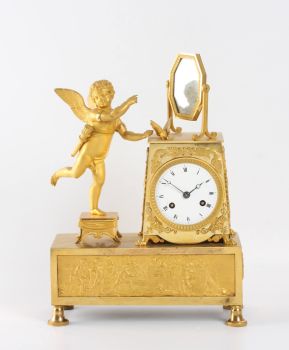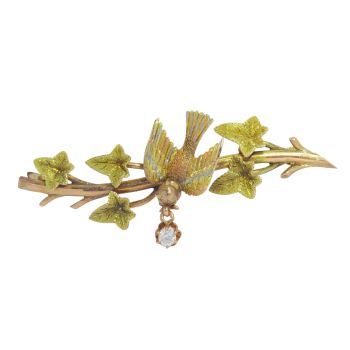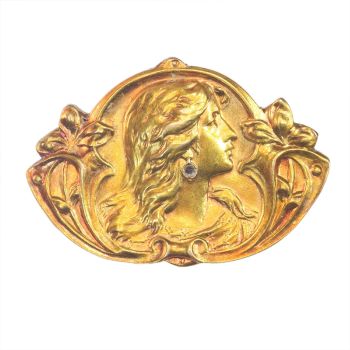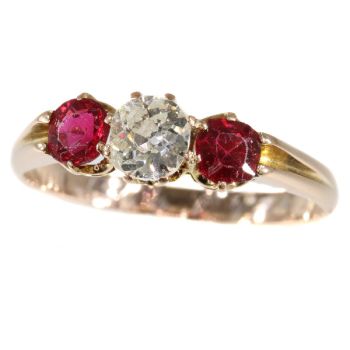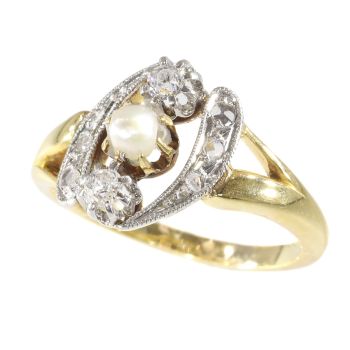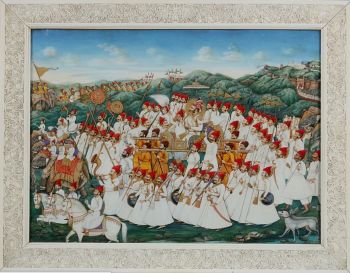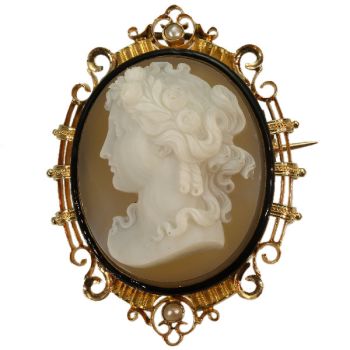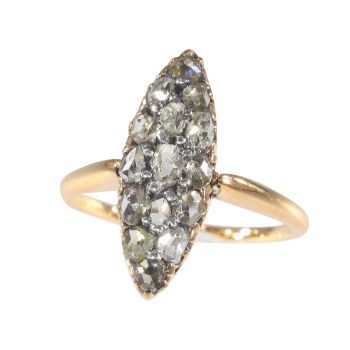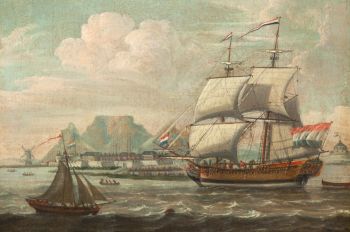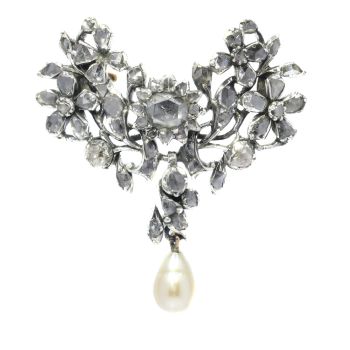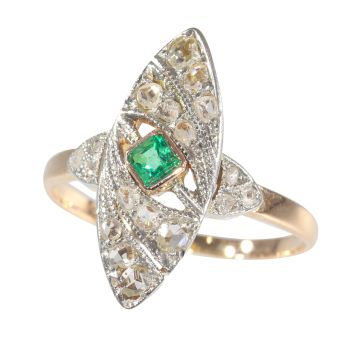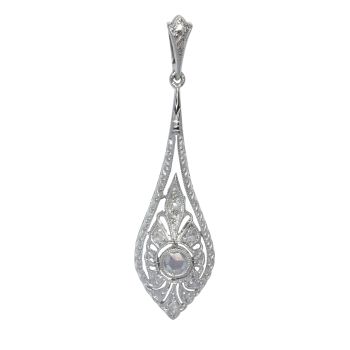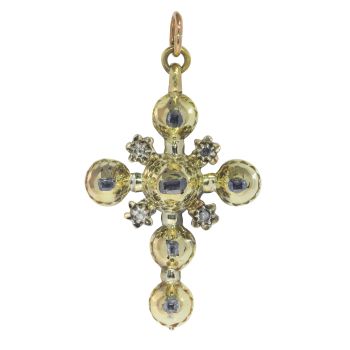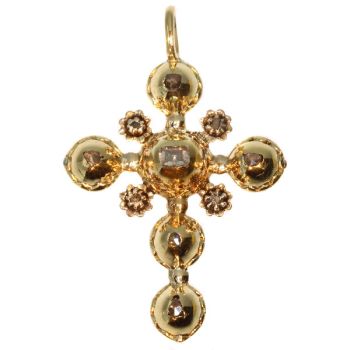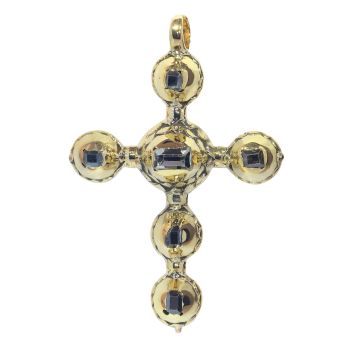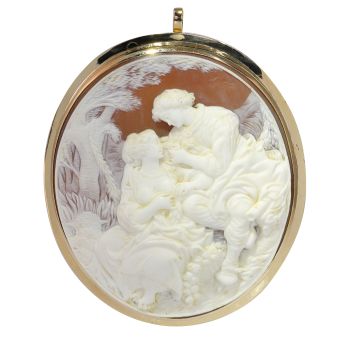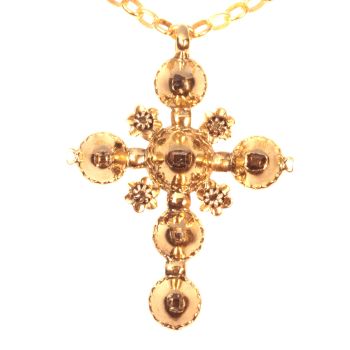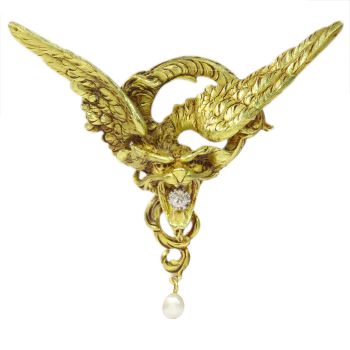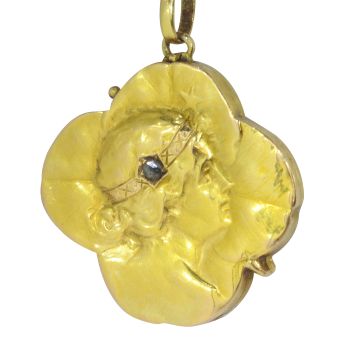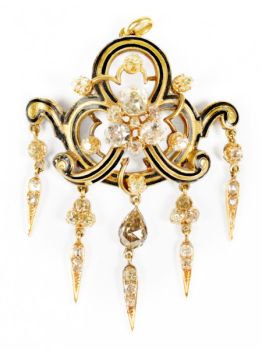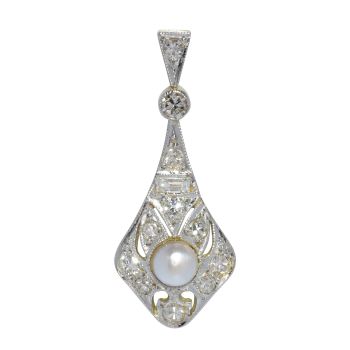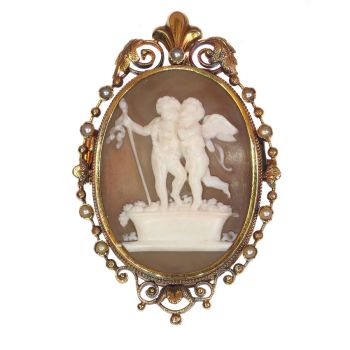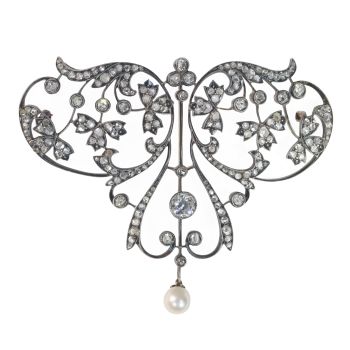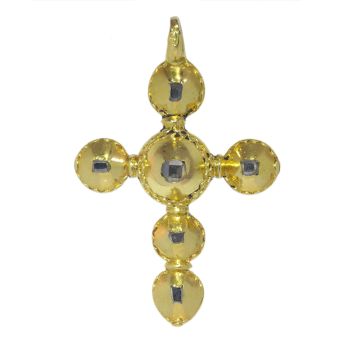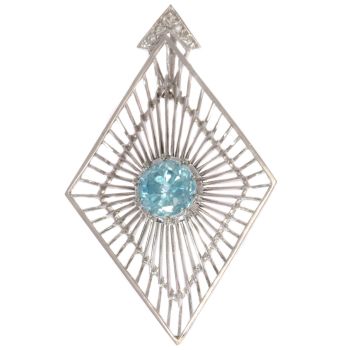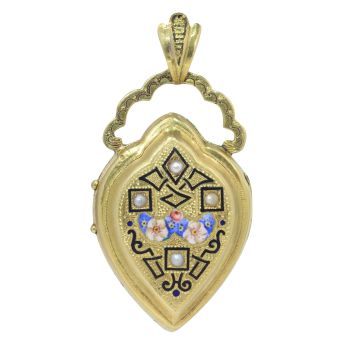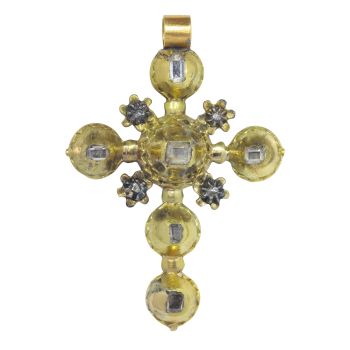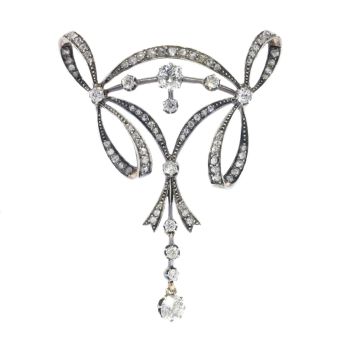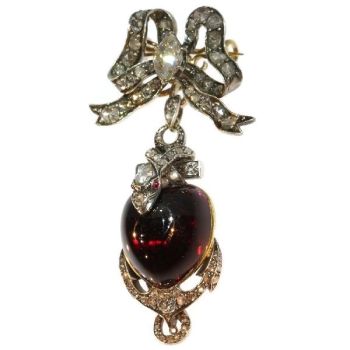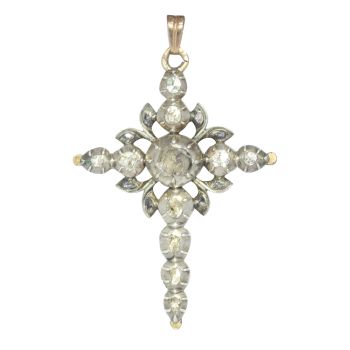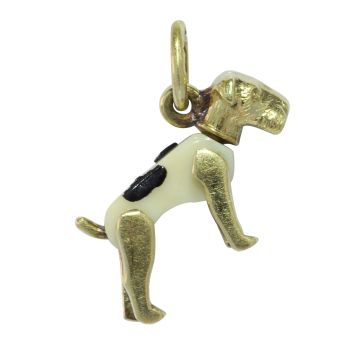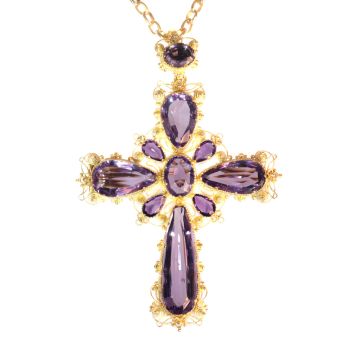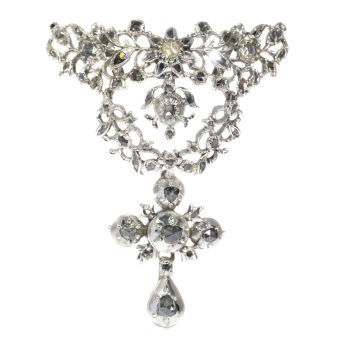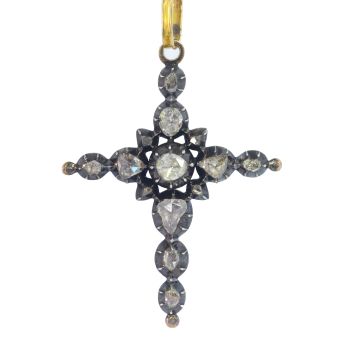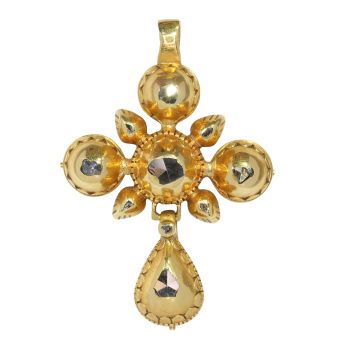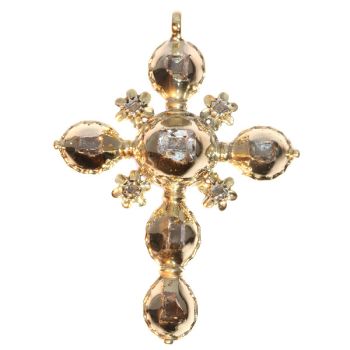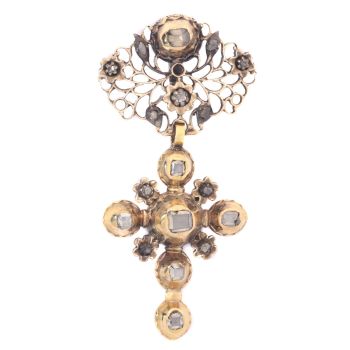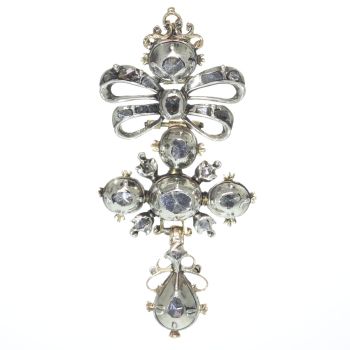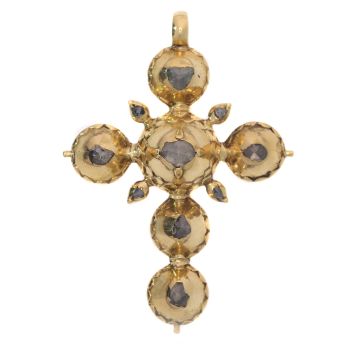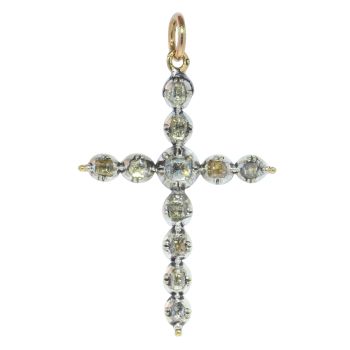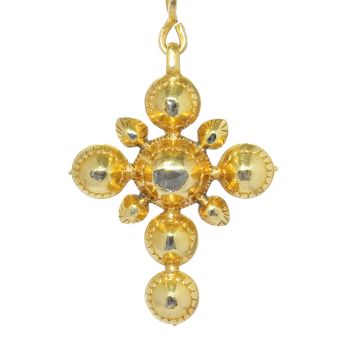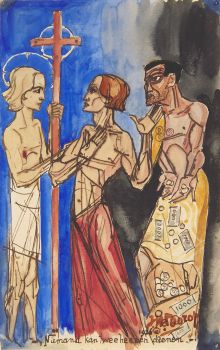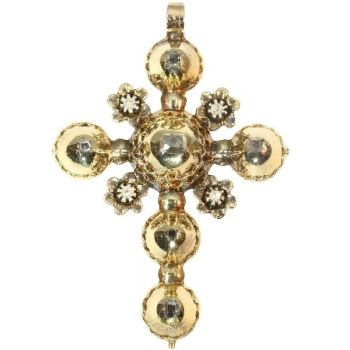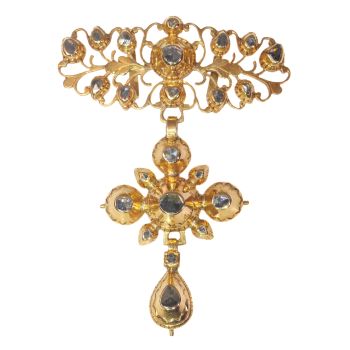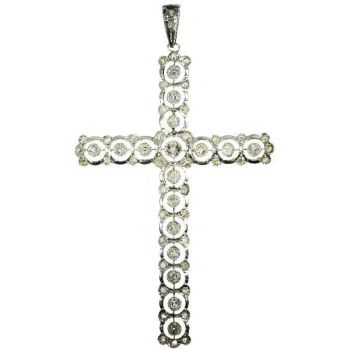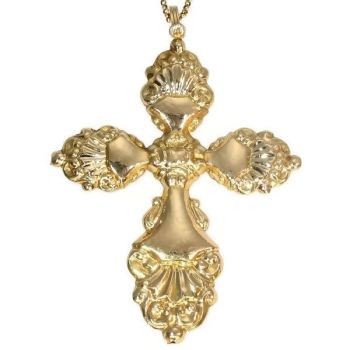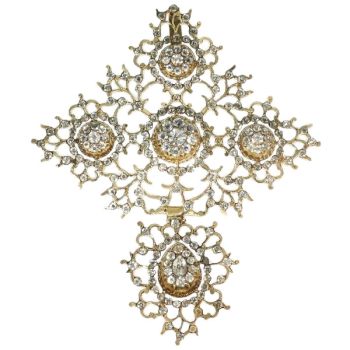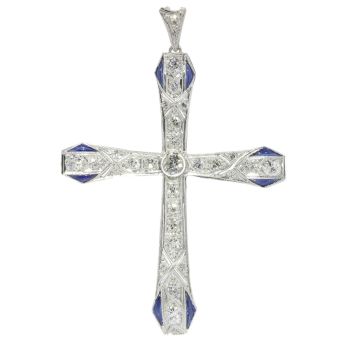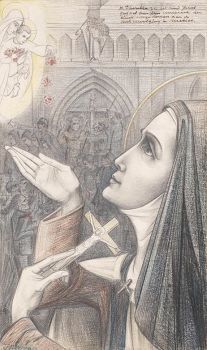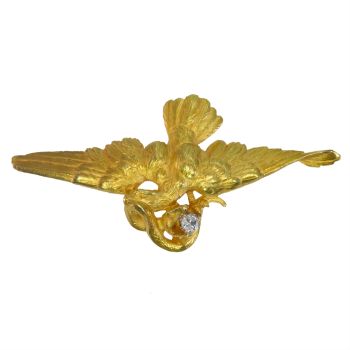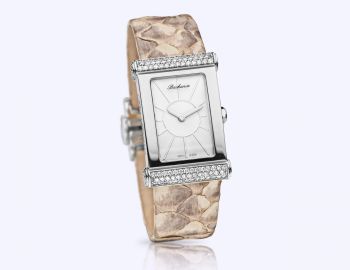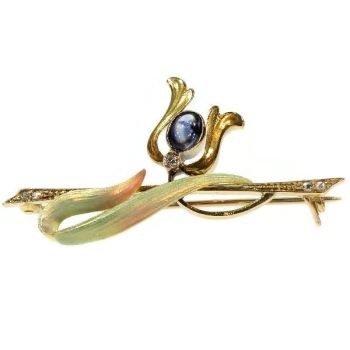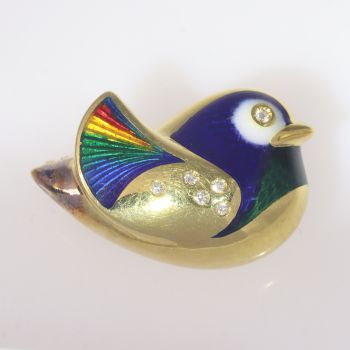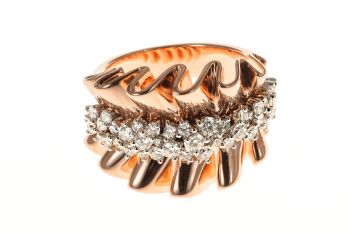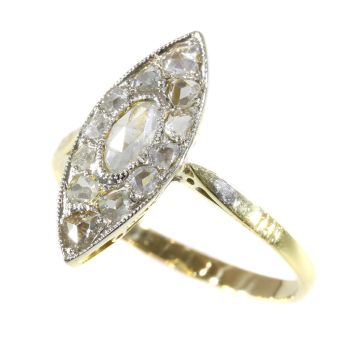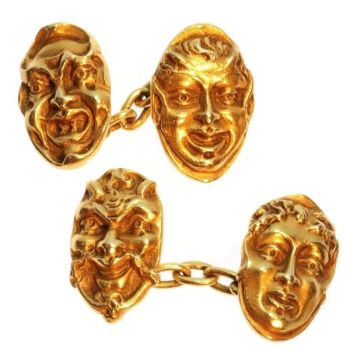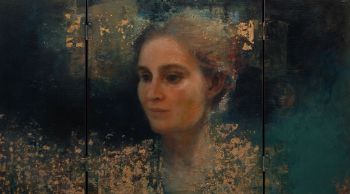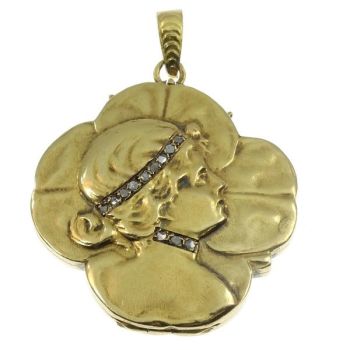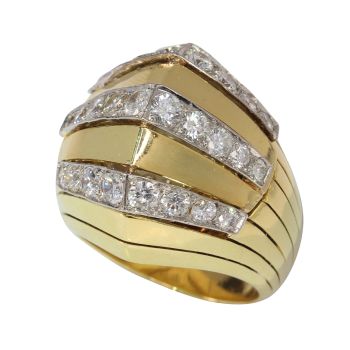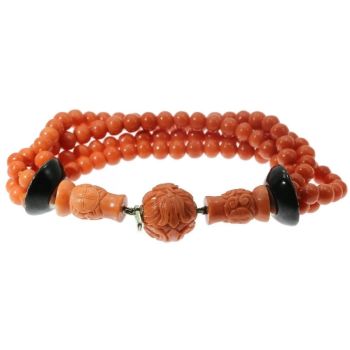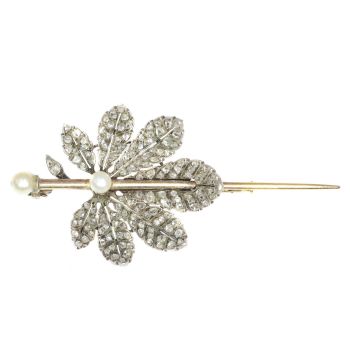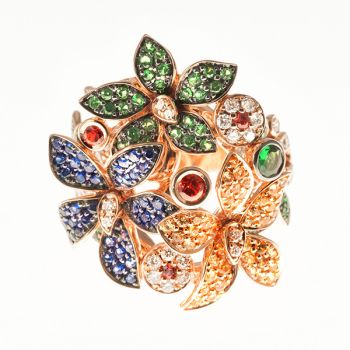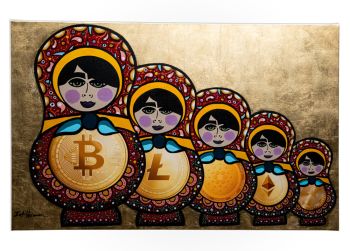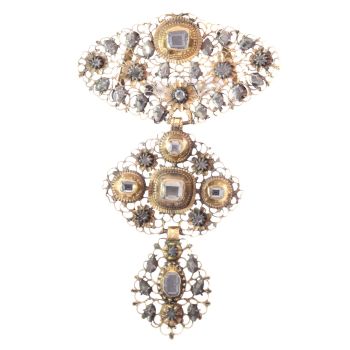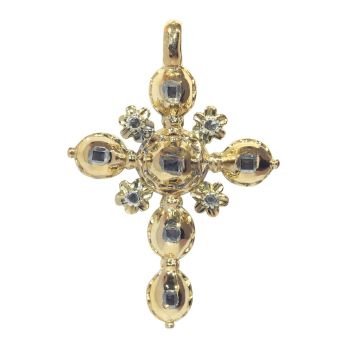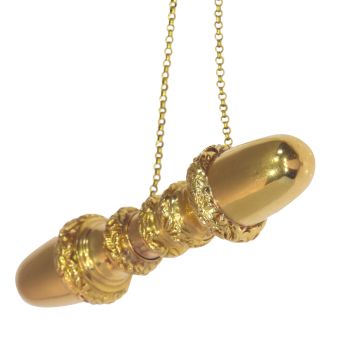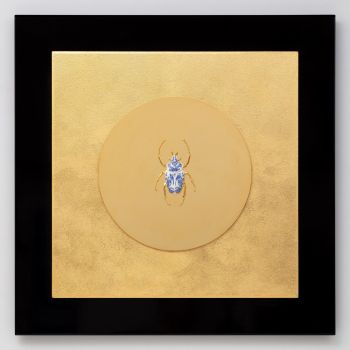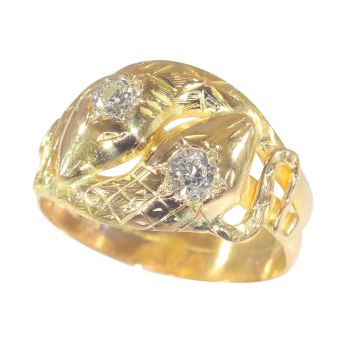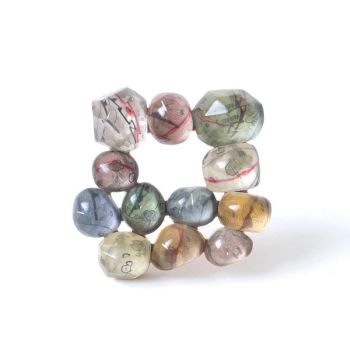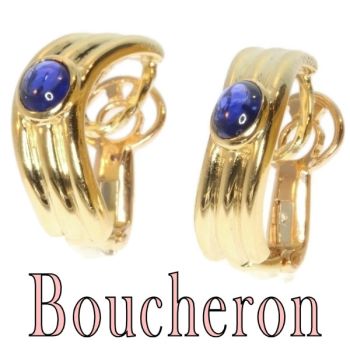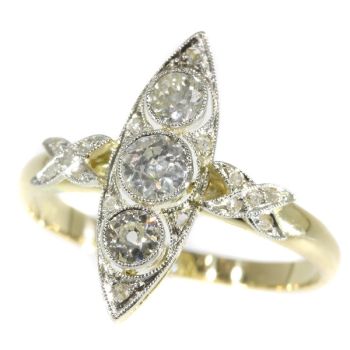Antique 18K filigree cross pendant 1900
Artista Desconocido
FiligranaOro
Actualmente no disponible a través de Gallerease
- Sobre la obra de arte
Antique jewelry object group
pendant
Condition
very good condition
more info on our condition scale
Country of origin
unknown
Style
Victorian - Victorian decorative arts refers to the style of decorative arts during the Victorian era. The Victorian era is known for its eclectic revival and interpretation of historic styles and the introduction of cross-cultural influences from themiddle east and Asia in furniture, fittings, and Interior decoration. Victorian design is widely viewed as having indulged in a regrettable excess of ornament. The Arts and Crafts movement, the aesthetic movement, Anglo-Japanese style, and Art Nouveaustyle have their beginnings in the late Victorian era.
See also: Victorian
more info on styles
Period
ca. 1900
Events & facts of this era, poetry of this era, fashion of this era.
Source of inspiration
Christianity
Theme
Cross - The cross is one of the most ancient human symbols, and is used by many religions, such as Christianity. It is frequently a representation of the division of the world into four elements (or cardinal points), or alternately as the union of theconcepts of divinity, the vertical line, and the world, the horizontal line. (from: Wikipedia)
Material
18K yellow gold (touchstone tested)
more info on precious metals
Technique
Filigree (formerly written filigrann or filigrane) is a delicate kind of jewel work made with twisted threads usually of gold and silver or stitching of the same curving motifs. It often suggests lace and French from 1660 to the late 19th century. Itshould not be confused with ajoure jewellery work; while both have many open areas, filigree involves threads being soldered together to form an object and ajoure involves holes being punched, drilled, or cut through an existing piece of metal. (from: Wikipedia)
Hallmarks
Illegible remains.
more info on hallmarks
Dimensions
height 5,20 cm (2,05 inch)
see picture with a ruler in millimeters and inches
Weight
6,30 gram (4,05 dwt)
Adin Reference Nº
22298-0347
Copyright photography
Adin, fine antique jewellery
Additional information
our latest acquisitions
jewelry glossary
wall of fame
visit us in Antwerp
subscribe to our mailinglist
- Sobre el artista
Puede suceder que un artista o creador sea desconocido.
Algunas obras no deben determinarse por quién está hecho o por (un grupo de) artesanos. Algunos ejemplos son estatuas de la Antigüedad, muebles, espejos o firmas que no son claras o legibles, pero también algunas obras no están firmadas en absoluto.
También puedes encontrar la siguiente descripción:
•"Atribuido a …." En su opinión, probablemente una obra del artista, al menos en parte.
•“Estudio de….” o “Taller de” En su opinión, una obra ejecutada en el estudio o taller del artista, posiblemente bajo su supervisión
•“Círculo de…” En su opinión, una obra del período del artista que muestra su influencia, estrechamente asociado con el artista pero no necesariamente su alumno.
•"Estilo de …." o “Seguidor de…”. En su opinión, una obra ejecutada al estilo del artista pero no necesariamente por un alumno; puede ser contemporáneo o casi contemporáneo
•"Manera de …." En su opinión una obra al estilo del artista pero de fecha posterior
•"Después …." En su opinión, una copia (de cualquier fecha) de una obra del artista
•“Firmado…”, “Fechado…” o “Inscrito” En su opinión, la obra ha sido firmada/fechada/inscrita por el artista. La adición de un signo de interrogación indica un elemento de duda.
•“Con firma…”, “Con fecha…”, “Con inscripción…” o “Lleva firma/fecha/inscripción” en su opinión la firma/fecha/inscripción ha sido añadida por alguien que no es el artista
Artwork details
Related artworks
Artista Desconocido
IMPORTANTE Y RARO PINTURA INDIA DE ESTILO DE COMPAÑÍA EN MARFIL QUE REPRESENTA UN DESFILE1850 - 1900
Precio a consultarZebregs & Röell - Fine Art - Antiques
 curada por
curada porDanny Bree
1 - 4 / 12- 1 - 4 / 24
- 1 - 4 / 24
Samuel Dejong
Anatomia Blue heritage II Goliath Beetle closed BGG2019
Precio a consultarVilla del Arte Galleries
1 - 4 / 24







